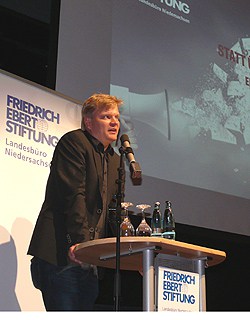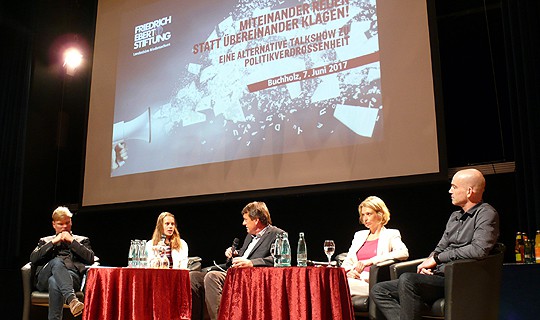Already, the campaign for this year’s parliamentary elections in Germany is looming. In order to inspire citizens, and especially young people, to get involved with politics (again) the Friedrich Ebert foundation and our local Member of Parliament, Svenja Stadler from the Social Democratic Party (SPD), decided to organize an alternative talk show. The subject: “Talking to each other instead of complaining about one another – an alternative talk show on political disillusionment.“
Both the headline and the question of what exactly would be alternative about the event made me curious, so I decided to attend. The concept, as it turned out, was similar to that of the popular German television chat show “Hard But Fair”. The discussion, in the northern German town of Buchholz, was streamed live to the Internet, with viewers being able to contribute to the debate. However, the interconnection between the actual live debate and the online chat didn’t work out very well – the high number of verbal contributions on stage almost drowned out the live chat, all but turning the two into separate events.

“Participation”, Micus said, “depends on interest, which in turn depends on the perceived effectiveness of one’s own actions.” Whenever people lost the belief that they could change or influence things, he added, participation waned. Although the overall level of voluntary engagement was on the rise, those who had already been sidelined could no longer be reached, even through new and unconventional instruments of participation. The resulting gap, Micus warned, was widening. On those occasions where people did end their personal passivity and were politically reactivated, they tended to do so in a pessimistic and distrustful manner. Micus then formulated a demand: “The established forces must better defend the political parties because they are filters against populism.”
In order to inspire people to become invested in politics again, Micus believes, political parties have to reach out to them and initially kindle their interest with non-political offerings and without any self-interest, thereby lowering psychological barriers. This, he said, could eventually pave the way towards more political engagement. At the same time Micus called on the major people’s parties to offer more utopias and visions: “Mobilisation is a result of clear political profiles and distinctiveness.”
So, how disillusioned is the population with regard to politics? The youngest member of the panel, Sophie Röhse from Buchholz youth council, said: “I do believe that there’s an interest in politics. But although it is very relevant to young people, they don’t tend to feel represented.” Even if this is the case, it means that there must be young people who actively get involved – otherwise, who will represent young people?
Indeed some participants of the discussion were not perceived as much as they could have been and also didn’t take part much in the debate – which, after all, is exactly what we don’t want. Young Sophie Röhse for example was hardly included in the conversation, and local politician Martin Gerdau also didn’t get the opportunity to contribute much. As mentioned above, the online chat also didn’t figure very prominently, and didn’t remain accessible for later reference.
The idea of an alternative chat show is a good one, and the concept may indeed become highly participative. However, the actual realisation is something that requires some more work.

 Monika Griefahn GmbH
Monika Griefahn GmbH
Leave a Reply